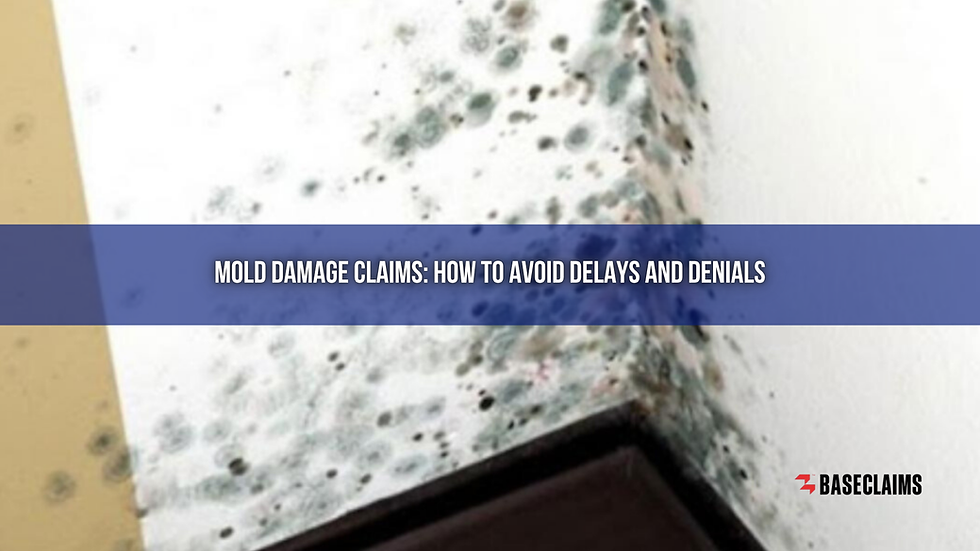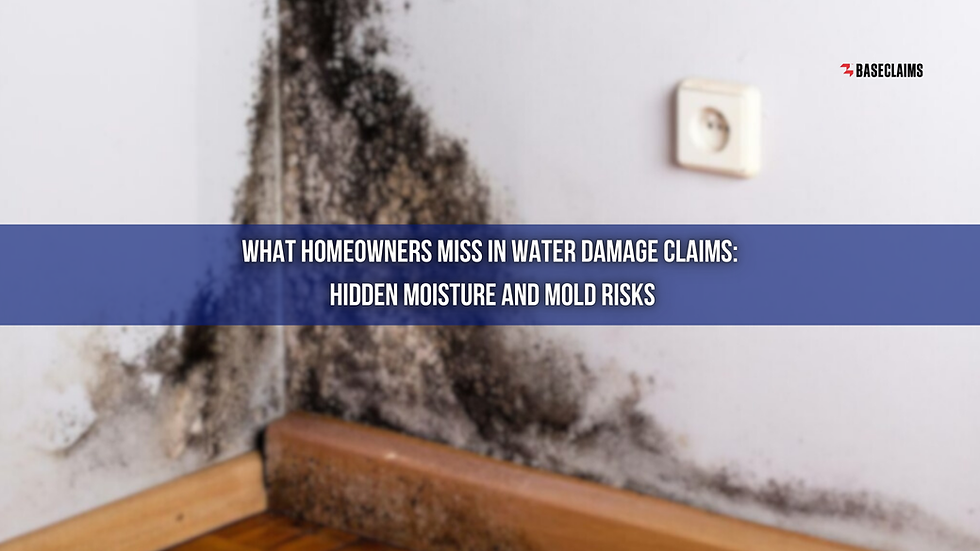Mold Damage Insurance Claims: What Gets Approved and What Gets Denied
- Benji Licht
- Aug 27, 2025
- 2 min read
Mold Damage Insurance Claims: What You Must Know

Mold issues can develop quietly after water damage, humidity problems, or hidden leaks. When it comes to mold damage insurance claims, many property owners find the rules unclear until they’re already facing expensive remediation bills. How your policy treats mold damage depends on its cause, the extent of the damage, and the documentation you provide.
How Insurers Typically View Mold-Related Damage 🧐📄
Insurance companies often treat mold differently from other types of property damage. If mold develops as a result of a covered event such as sudden water damage from a burst pipe it may be eligible for coverage. However, if the mold is due to ongoing maintenance issues, neglected repairs, or gradual leaks, insurers are more likely to deny the claim.
The language in your policy matters. Many include limits or exclusions for mold damage, sometimes capping payouts or only covering remediation when it’s directly linked to a recent insured event. This is why a careful review of your coverage before you file is essential.
Documentation That Strengthens Your Case 📸
When filing, proof is everything. Take clear photos of visible mold, moisture sources, and damaged materials. Keep all repair receipts, inspection reports, and any professional assessments. Written timelines of events leading to the mold discovery can also help establish your case.
A strong evidence package can counter an insurer’s claim that the damage developed over time or was preventable. Having independent assessments from licensed contractors or environmental specialists can further support your position.
Common Reasons for Denial ⚠️❌
Insurers frequently reject mold claims because they believe:
The damage resulted from a long-term issue, such as a slow leak.
There was a lack of timely reporting.
The policy excludes mold unless caused by a specific peril.
These denials highlight why acting quickly after discovering mold is critical. Even a short delay can give the insurer reason to argue that you failed to mitigate damage.
Steps to Improve Your Approval Chances 📈🔑
Notify your insurer as soon as mold is discovered. 📞
Document the scene before making any repairs📷.
Preserve damaged materials until your adjuster has inspected them📦.
Early action not only limits further damage but also demonstrates responsible policyholder behavior something insurers take into account.
Role of Expert Support in Complex Claims 👩⚖️🔍

Handling a mold claim can involve technical details about moisture intrusion, structural issues, and remediation standards. Having an experienced claims professional review your documentation, inspect the damage, and negotiate with the insurer can increase your chances of a fair settlement. They know the policy language, the common tactics used to minimize payouts, and the evidence required to prove a valid claim.
Moving From Damage to Resolution 🏡🌟
Mold damage can disrupt your property, health, and daily routine. But with a clear understanding of how mold damage insurance claims work, detailed documentation, and prompt action, you can protect your rights and secure the compensation needed for proper remediation. By approaching the process methodically, you move beyond the immediate crisis toward a safe, restored space without unnecessary delays or disputes.
Benjamin Licht 954-589-8710
Office 954-466-5730
Don’t wait until it’s too late






Comments